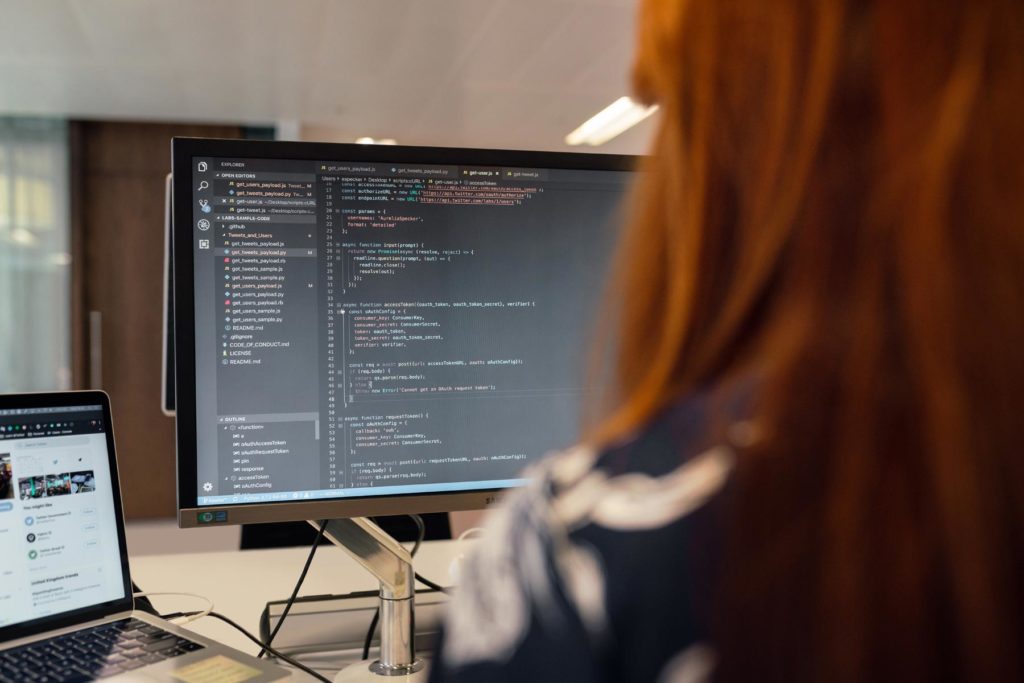Will mobile technology be the key to enabling us to function as a society when our current lock-down restrictions ease? That’s the question we’re asking on the blog this week.
We all know life has changed beyond recognition over the last couple of months and as much as everyone wants a return to normality, we also know that normal will be a new normal. There will be no quick fix or return to life as we knew it. We know the Government’s 5 tests which need to be in place before any kind of release from lockdown can begin and we also know that some form of social distancing will likely have to continue for some time to come. There will continue to be restrictions on our movements and contact with people and much discussion is taking place just now around contact tracing to be able to let us know if we’ve been in close proximity to anyone who has tested positive for Covid-19. Businesses which have been closed will have to adapt and find new ways of operating to ensure they can open while maintaining the social distancing rules. Mobile technology could be the key to both of those topics.
Contact Tracing
There has been much discussion around how we know who has the virus and if we’ve been in contact with them. Ramping up testing capacity is just one part of this but to get on top of the pandemic, we need to know if someone is infectious before they display symptoms to ensure they can isolate and come into contact with fewer people in the community to stop the spread. Therefore, testing needs to work hand in hand with tracing and that’s where mobile technology is key. The contact tracing mobile app which is being trialled this week will ensure we can trace anyone who has been within a specific radius of someone who does test positive so they can be contacted and tested.
That all sounds great and the technology is there to provide that information via our mobile devices but this approach has already been heavily criticised and will undoubtedly draw continued criticism from those who feel it infringes on our civil liberties with too much information on our movements being accessed by Government. People will have to make their own informed decisions as to why or why not they wouldn’t want to download the app. In any walk of life or business a new use of technology requires the buy-in of all involved and this is no different. The only difference now is the buy-in needs to come from an entire population and convincing everyone this is the right way forward will not be an easy task. However, our whole way of life and our economy is dependent on us finding a way out of the current situation, a solution that keeps us safe and doesn’t risk an escalation of this virus until we have a cure.
NHSX, the digital development department of the NHS has said that the information gathered via the app will only be used for health and research purposes and that it can be deleted at any time. We will need to place our trust in that statement as the tracing app is a key element of us being able to get the country back to work and any kind of normality.
This is an example of mobile technology being used for good and detractors shouldn’t be too heavily critical without good cause or examples of why this shouldn’t be done. However, the success of this approach doesn’t just rely on the technology – the technology is there but we all need to trust in it. This will only be successful in getting us out of the lockdown if we buy into the approach, the technology and place our trust in each other.
Other Mobile Application Uses
The contact tracing app is the key but there are many other business applications where mobile technology might allow a return to operating. So many businesses are currently closed but mobile could offer a way for them to open with a level of distancing and maintaining safety for staff and customers.
Certain businesses which were thriving before the Covid outbreak and are suffering through this will need to be clever and look into ways to adapt their business model in order to survive. Supermarkets did this quickly and effectively with markers on the floors, limiting numbers in the store at any given time and implementing protective barriers at check-outs. Not all businesses will be able to work in the way the supermarkets have done. Take for example, bars and restaurants who overnight saw their businesses reduced to zero sales as the social restriction measures were put in place. A packed bar on a Friday night isn’t the kind of environment that will make enforcing social distancing very easy. Or shopping malls where queuing for individual shops would be impossible as the queues would eventually merge into each other. They will need to be prepared for accepting fewer customers in order to survive and get back to business.
One option I read with interest is of a bar owner looking to a mobile app to be able to open up when he can. The view was put forward by Jon Dalton who owns Bloomsbury Bowling as well as a chain of pubs and he suggested in the interview with Sky News that a mobile app could ease congestion in bars by having people order drinks via the app from their table to avoid customers congregating at a bar. Seems like a smart option and is an example of how businesses must look to adapt to come through this crisis.
Could that also be applied to shopping malls? Take for example, if people could book a slot via a mobile app or website and they had a time slot to shop in a particular mall to cut down the numbers who are in there at any given time. They can’t operate a queuing system like supermarkets as they don’t have the space and car parking logistics would be a nightmare if they adopted the same format as supermarkets so some form of booking system might be a potential for them to open up and maintain social distance.
Likewise, gyms may need to restrict people in the buildings at any given time so an extension of fitness apps could be to book slots in gyms – maybe not always the same one – an app that can show where there is availability at any given time.
Summary
These are just some thoughts on how things could be adapted using the technology we have available today to let us ease some restrictions and let businesses open and people return to work.
We are a society that is heavily reliant on mobile app technology, we use it to communicate, to track things, to shop – there’s not much we don’t do with them and they’re always with us so it’s probably fitting that the device we’ve grown so reliant on might be the technology that sees us get back to some kind of normality.
There is also a lot of debate going on around what workplaces will look like and whether working from home will continue for some time to come. In that circumstance, all areas of technology will come into play even more than they have done to date to ensure all businesses can adapt to our new normal.
In the meantime, all we can do is follow the guidelines, stay home and stay safe.




